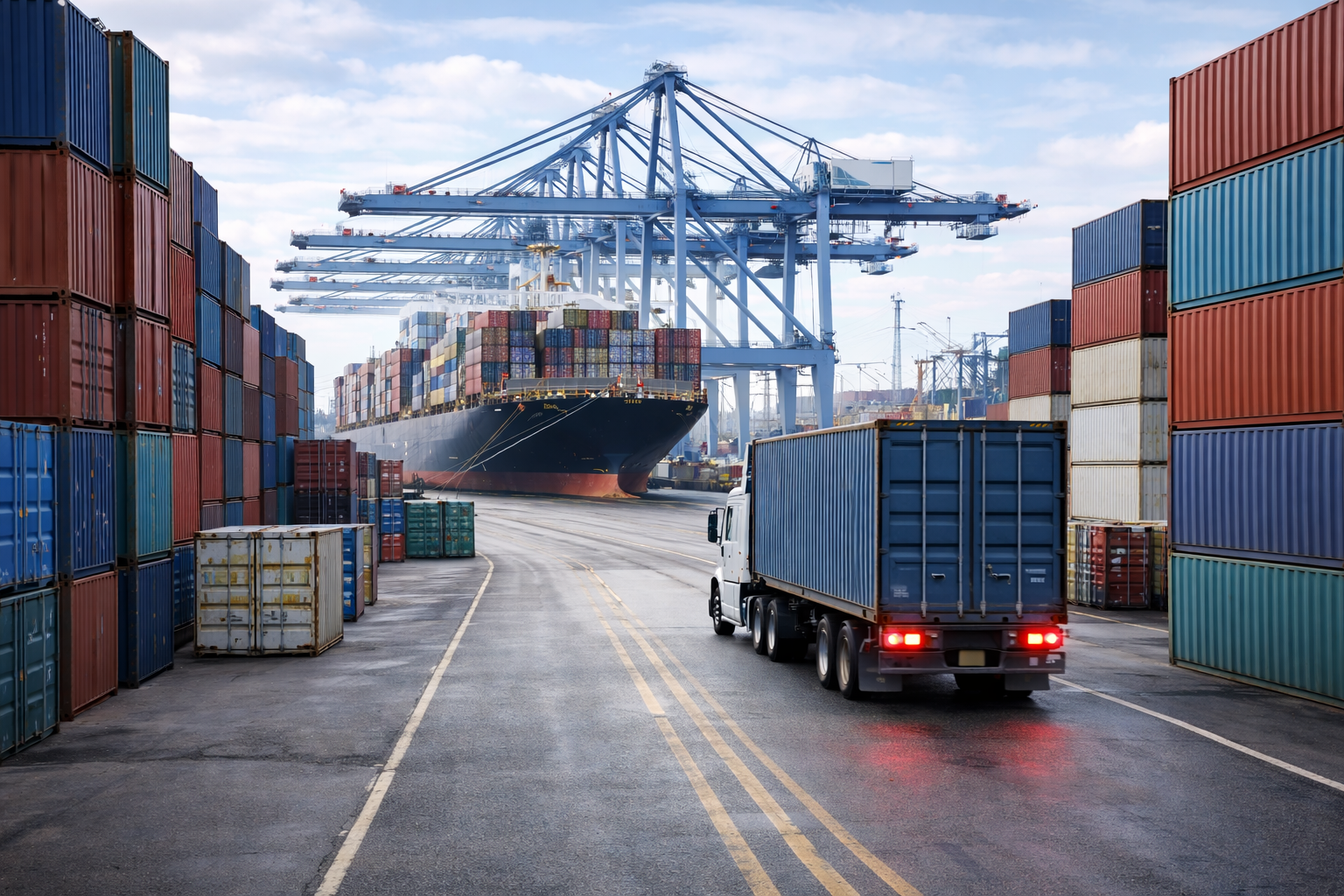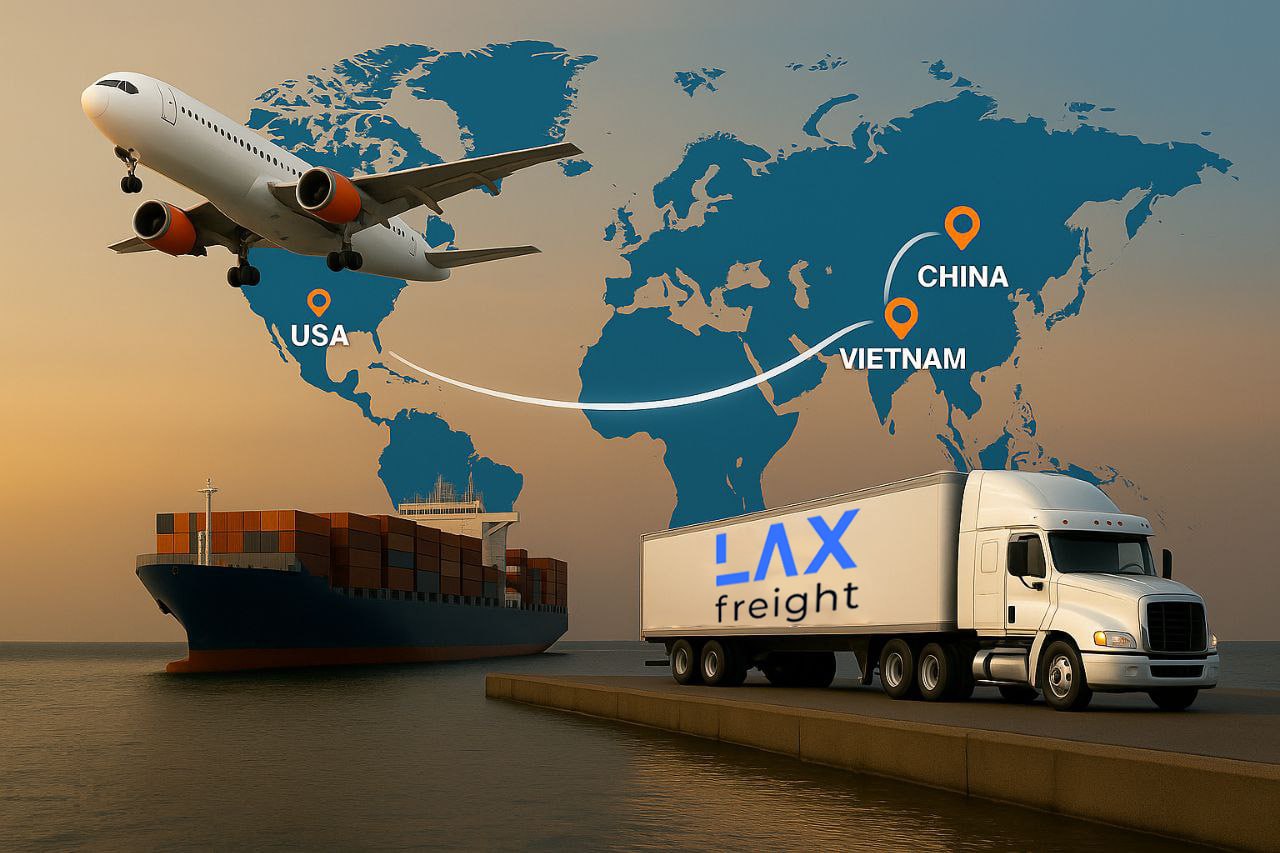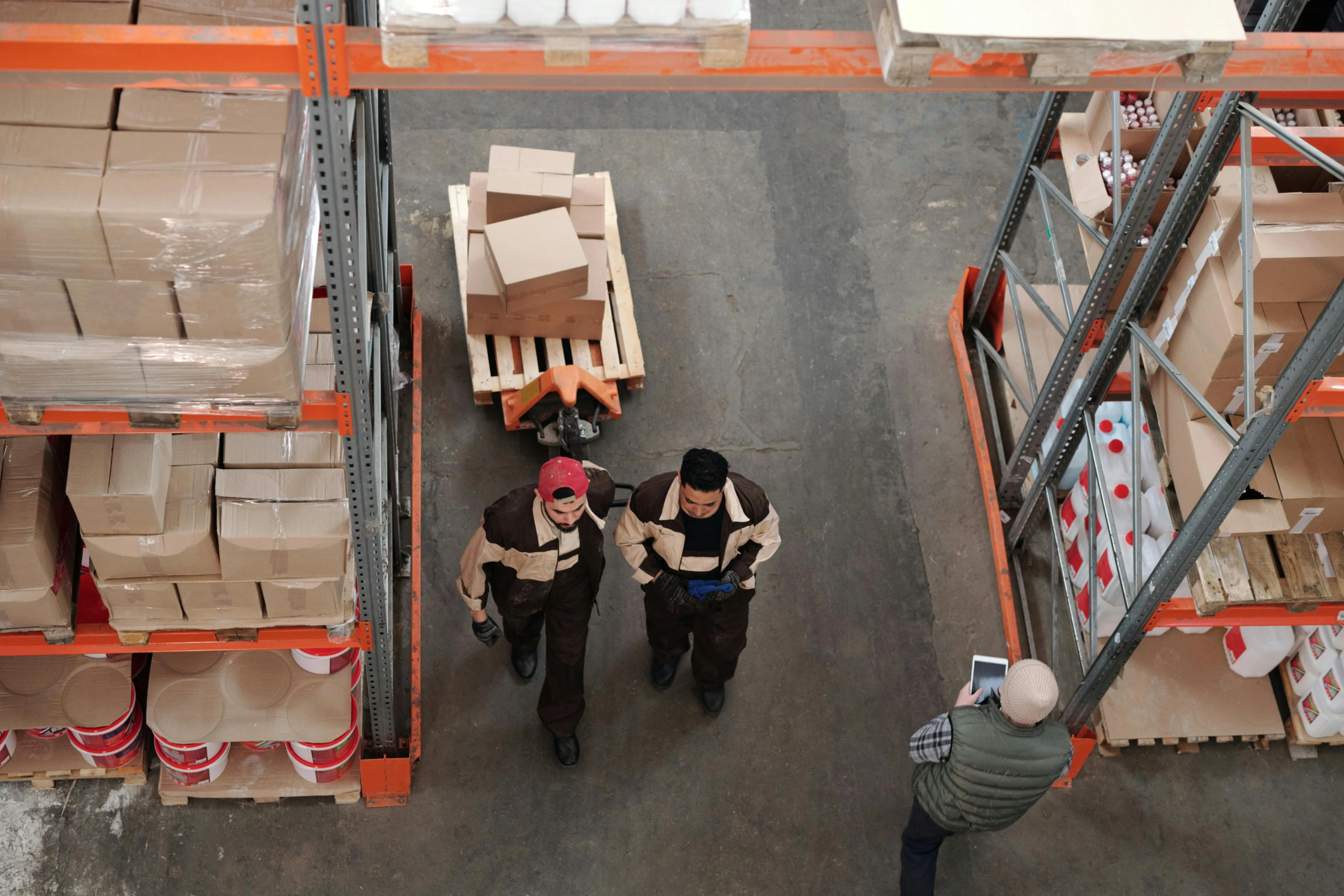The logistics sector involves various services that ensure efficient goods delivery. One such service is the Container Freight Station (CFS).
This article delves into the CFS meaning in shipping, its role, operations, and services. We seek to simplify your trucking and provide a burden-free experience.
What is a container Freight Station (CFS)?
A Container Freight Station (CFS) is a facility where cargo is delivered for further transportation. There, the goods are consolidated or unconsolidated. Usually, it refers to combining less-than-truckload (LTL) shipments into a full truckload (FTL). It can also be the opposite: separating a container’s cargo for final delivery. Thus, it serves as a warehouse, storing items till they are grouped and filled into a container.
CFS facilitates the smooth transfer of goods, acting as an intermediary between shippers and carriers.
Role of CFS in Shipping
A Container Freight Station (CFS) accelerates and simplifies the handling and processing of cargo. Specifically, CFS facilitates the following aspects:
- Consolidation of smaller shipments into full container loads (FCL). CFS collects smaller shipments from several shippers and combines them for further delivery. This helps save transportation costs by more effectively using container space.
- FCL deconsolidation into smaller shipments for further distribution. Upon reaching the CFS, full container loads are divided into smaller shipments for final delivery. It facilitates quick and efficient cargo transfer to consignees.
- Temporary cargo storage. CFS provides storage for items that await further transportation, consolidation, or customs clearance. It includes protecting goods in a secure environment, climate-controlled storage for perishable or sensitive cargo, and detailed records of stored goods for easier management.
- Coordination of customs clearance procedures. CFS prepares and manages customs documentation that facilitates inspections. It also stores goods under customs control, deferring duty payments until clearance.
Types of Container Freight Stations
Two types of CFS differ in location and function within the supply chain. Understanding their specifics helps clarify their meaning in the delivery process.
Origin CFS
An Origin CFS is located at the point of origin of goods. Then, the cargo is consolidated before shipping. It’s responsible for:
- Receiving cargo from shippers.
- Consolidating LTL shipments into a FCL.
- Preparing export documentation.
- Ensuring the secure loading and effective use of the container space.
Destination CFS
A Destination CFS is located at the destination point. It deconsolidates the received loads after arrival. Its functions involve:
- Receiving containers from the port or terminal.
- Deconsolidation of FCL into smaller shipments.
- Coordinating customs clearance.
- Arranging for the final delivery to consignees.
CFS Operations
A CFS provides easier and smoother handling and movement of the cargo in the supply chain. It ensures the loads are managed efficiently from the origin to the destination. The main functions of a CFS include:
- Consolidation. A CFS combines smaller shipments into full container loads. It foresees goods receiving, sorting and grouping them, and ensuring proper packaging. The goods should be sorted and packaged to maximize container space utilization and make transportation more cost-effective.
- Deconsolidation. In this case, full container loads are divided into smaller shipments upon reaching a CFS. This process involves cargo unloading, sorting, repacking, and dispatching for final delivery to the consignees.
- Storage. Temporary storage is one of the main functions of CFS. It’s needed for items held temporarily, waiting for sorting or customs clearance. Storage operations include inventory management to maintain records of stored goods, climate-controlled storage for sensitive cargo, and flexibility to adapt to the needs of shippers.
In addition, a CFS may provide value-added services to enhance the logistics process. It may include labeling the loads, quality control of the cargo, and customs clearance support.
Customs Clearance Procedures
One of the primary CFS functions is managing customs clearance processes. A bonded CFS warehouse is a secure facility where imported loads are stored without duties payment until they’re cleared. These warehouses provide the following services:
- Secure storage for goods awaiting inspection.
- Efficient processing of the customs clearance by providing all documentation and procedures.
- Cost savings amid deferring duty payments.
Air Freight and Ocean Freight
CFS facilities are also essential for air and ocean freight operations. They provide services vital for smooth delivery process and regulations compliance.
In air freight, CFS facilities offer support before and after transportation. In particular, it stores the cargo before it’s loaded onto an airplane and manages all necessary documentation. The required paperwork includes the ACE Air eManifest that should be submitted to the Customs and Border Protection (CBP).
CFS also manages load sorting and labeling for further tracking. It uses the in-bond control number for non-consolidated shipments and the master air waybill and associated house air waybill for consolidated shipments. It provides updates on cargo status to customs brokers and importers.
In ocean freight, CFS consolidates and loads LTL shipments into containers at the point of origin. The ACE eManifest Ocean manages this process and provides comprehensive shipment data, including bill of lading information.
At the destination port, CFS stores containers before the next delivery stage. The warehouse ensures containers are labeled and prepared for further transportation, simplifying cargo transportation.
CFS Charges and Fees
Charges for CFS services vary based on factors such as cargo type, duration of storage, and value-added services. Usually, CFS fees are divided into:
- Storage fees for storing the loads in the warehouse.
- Handling fees for the cargo sorting, labeling, and preparing for further delivery.
- Documentation fees for preparing and managing the necessary shipping and customs paperwork.
CY/CY and CFS/CFS Terms on the Bill of Lading
The terms of containing Container Yard to Container Yard (CY/CY) and CFS/CFS on the bill of lading indicate the locations where the loads are received. The main difference of CFS/CY is that container yards don’t handle consolidation or deconsolidation of LTL loads and are mainly used for FCL shipments.
CY/CY refers to the process of cargo transportation between the container yards at the origin and destination locations. It’s usually used for FCL shipments. The shipper should transport the full container to the origin CY for further transportation. Then, it’s shipped to the destination container yard. Then, the consignee is responsible for transporting it to the final destination.
CY/CY transportation minimizes handling of full container loads and reduces damage and loss risk. It’s ideal for large shipments.
The CFS/CFS process is commonly chosen for less-than-truckload shipments. The shipper delivers small volumes of goods to a CFS, where they are sorted and consolidated into FCL. Then, it’s delivered to the destination CFS, where the cargo is deconsolidated for further transportation to consignees.
This option is suitable for smaller shipments. CFS facilities help optimize container usage, reduce shipping costs, and streamline logistics. They also ensure flexibility through additional services, like storage, labeling, or customs clearance support.
CFS Facilities and Services
CFS facilities offer services that provide efficient and safe cargo transportation. These services meet the needs and requirements of businesses and distributors, enhancing overall efficiency. As we already know, CFS services include:
- Cargo storage before and after transportation provides more flexibility in shipping.
- Labeling and marking for further identification and tracking.
- Security to protect cargo from theft and damage.
- Inventory management to track the movement and status of the loads.
- Value-added services, such as packaging, palletizing, or distribution.
Conclusion
A Container Freight Station (CFS) is a vital aspect of the logistics industry that ensures an efficient delivery process. CFS warehouses are essential for supply chain optimization, from sorting and grouping the loads to customs clearance.
If you need reliable and efficient CFS services for your loads, partner with LAX Freight. Our team aims to support your logistics operations and minimize any potential issues during transportation.



